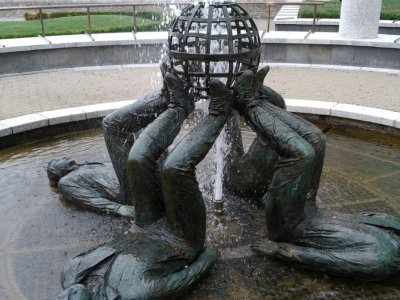stdClass Object
(
[id] => 16219
[title] => The Joy of the End is Prolific
[alias] => the-joy-of-the-end-is-prolific
[introtext] => Surpluses and misalignments/10 - By moving your arms not to fall you can learn to fly
by Luigino Bruni
published in Avvenire on 04/11/2018
“...the richer our scheme of values, the harder it will prove to effect a harmony within it. (...) The price of harmonization seems to be impoverishment, the price of richness disharmony.”
Martha Nussbaum, The Fragility of Goodness
Understanding that the only heritage we really have is the present is an absolute kind of experience of human existence. That’s when we suddenly realise that the past is gone and the future is entrusted to a fragile promise because it is all a gift. But in what could and should be the hour of despair, we are reached by a brand new joy that we have never experienced in all the paradises of the past. It comes from the awareness that once we really and finally return to be poor we are breaking down the last idol: our "I".
We understand that over the years it has become huge, because it fed on the rubble of all the idols we have met and destroyed along the way. After every idolatrous battle it became bigger and stronger, our victories increased its certainty and satisfaction for having conquered and defended the true faith. Until, all of a sudden, we realize that to free ourselves from this last new and great idol, we no longer have to fight but only pronounce a docile "amen". This different joy is perhaps something similar to the gladness that will surprise us when - on another day - a loyal friend tells us: "It is over"; and there we will say our amen, and we will feel that only one story, a wonderful story, is over, but that the story, ours, is not over, because a living remnant will be saved.
[fulltext] =>
Ageing is a delicate and crucial process to manage even in communities and organisations, which is particularly evident in this historical phase of great changes. It has one crucial peculiarity, though: collective realities are not destined to the inexorable decline and death that are characteristic of human life, because they can continue to live beyond the lives of the people who make them up. It is in fact part of the moral task of those who live and govern a community or an organization to do everything possible to ensure that the life of their institutions is longer than their own, to prevent that the two "deaths" should coincide. People who by vocation find themselves in a community manage to defeat death by making their community continue to live beyond their individual death - there are many forms of true resurrection, and they are very unlikely and unexpected. This original form of "immortality" is one of the legacies promised to those who set out on a journey following a voice.
Some important challenges are concentrated around these deaths and resurrections. Think, for example, of the relationship between the elderly and the young. An ageing community has a vital need for young and middle-aged people who could regenerate it with their vital energy and providential innocence, because the joy and promise of the future of young people can cure the natural sadness and nostalgia for the past of the elderly. From this perspective, ideal-driven and spiritual communities truly resemble natural families, where the presence and proximity of grandchildren makes the ageing of grandparents joyful and meaningful - one of the great shortcomings of our Western civilization is having taken away the joy of the daily presence of grandchildren (and children) from the lives of the elderly, a great indigence of which we have not yet become fully aware.
Historical reality, on the other hand, shows us a polarisation: young organisations are full of young people and older ones are full of the elderly. Attracting young people and authentic vocations is still possible even in older communities, but it is necessary for young people to see that the elderly are interested in the future and therefore anti-nostalgic. To see them immersed in the present, preparing for tomorrow, to see them work to the end, opening the door of the school with the same passion with which they open the door of the tabernacle in church, planting at least one new tree that will provide nourishment and shade for the future. The high average age of the members is not the only thing (or the main thing, I believe) that drives young people away from many communities today, but rather the absence of hope that the present and the future may still be beautiful, perhaps even more beautiful. And when old people stop generating a future, even the few remaining young grow old inside; they live their youth years as a non-free sacrifice, and everyone's skies are darkened.
"Your sons and your daughters shall prophesy" and the "your young men shall see visions" if "your old men shall dream dreams" (Joel 2:28). There is a connection between the dreams of the elderly and the prophecies of their children, because young people can prophesy in an environment enlivened by the hopeful dreams of adults and the elderly. This is true both for civil and economic life (the lack of great future-generating dreams of adults and the elderly is the first obstacle that young people encounter), and it is even more true for communities and organizations gathered around collective ideals. A dying community can rise again if at least one younger person begins to prophesy in a space inhabited by the life dreams of the elderly.
That’s where the other great theme of the patrimony and works of the communities of the great past and great heritage (schools, hospitals, land, houses...) hides, too, which is particularly urgent and delicate today, both for the religious and lay charismas.
The founders create works because this institutional generativity is often an essential component of the charisma. In generating them, they align them with the charismatic dimensions that the power of the light of the foundation phase allows them to glimpse. Every foundation of a new charismatic community is an anticipated eschaton, where prudence (which is also a virtue of the founders) is overwhelmed by the urgency of achieving in life and on earth what they see in heaven. Its works are built in the already but looking to the not yet. When the founding phase is over, those who continue the race find themselves with houses and institutions that are by their nature unsustainable, and the weight of their management often prevents them from making other "houses", from repeating and continuing the same - or even greater - miracles as the founders.
If the founders had made works in relation with the present reality, they would have been too small. These kinds of works are never "right": if they are not too great today, yesterday they would have been too little. But while the works of the foundation phase that are too great make the concrete and economic life of those who come after difficult, the ones that are too small cannot complicate the life of anyone because they simply end with those who build them, they do not become inheritance for those who come after.
We can close or sell the works that are too big, including the houses that have the signs and the smell of the miracles of the early days within their walls, and thus prepare ourselves for our death, for that of the works and the entire work. But there are also chances of life. One is that of the child who comes to us from the young womb of Hagar and takes the place of our - now withered - womb, (Genesis 16:4). Today Hagar is called alliance: pacts between ancient communities and younger communities, which can give meaning to structures that are about to die, bringing children and, with them, joy and the future back home. And then, perhaps, on another day, while we are getting older and older and less and less, repeating the same old words for years, if we continue to keep our tent open to passing guests, the announcement of a son of our withered flesh may surprise us by the new oaks of Mamre (Genesis 18:1). But before Isaac there is Ishmael, the son given to us by Hagar, a young foreigner who arrived inside our house. Perhaps today many aged communities do not see Isaac arriving because they have not previously generated Ishmael, or because they have not sensed him as a son of the same promise.
Surpluses and misalignments are the ordinary and constant condition of charismatic communities and of many ideal-driven organizations (IDO-s). Like all complex realities, these too constantly live on the verge of their possibilities. The people whom they welcome and who in turn enrich them are constantly evolving. They fall asleep having reached a certain balance in the contradictions, joys and sorrows of that day, and when they wake up they have to start looking for another one again. As young people they want paradise, as adults they find themselves in many purgatories and in some hell, too, until as old people they realize that they have never left that first paradise - but to understand it they needed a lifetime, and a little more. But also communities and organizations continually create and undo their balances, and when they don't, they start to die. The life of those who follow a voice is a game that takes place between people who produce surplus and are misaligned and who live and change within collective realities that are also changing and that displace them every day. The ability to live in unbalance is therefore the first art that people and organizations must learn. They should learn to walk on the wire, like the equilibrist who does not fall as long as he continues to move. It is an uncomfortable condition, but the only vital one because it is capable of generating real novelties. Then, once we get to the other end of the wire, another crossing over another abyss awaits us; until the end, when we discover that by the force of moving our arms not to fall we have actually learned to fly.
When in the night something or someone wakes us up, some do not open their eyes and try to fall asleep again reconnecting with the dream they were having, and so they can resume their sleep and dreams. But there are other people who, if interrupted in their sleep, open their eyes, turn on the light, read a novel, begin to pray, open the window and then watch the dawn. In this series of surpluses and misalignments we have sensed that when something or a cry of pain wakes us up in the middle of the first great dream of youth we don't have to keep our eyes closed to return to the first, interrupted dream. That waking up is the time for a new dawn, for another sun that awaits us beyond the closed shutter. It is the time for the new sounds and colours of the new day; it is the time for the different and no less great dreams of adult life.
That’s where our exploration of some surpluses and misalignments of communities and the people in them ends. And, also today, the last word is of thanks: to the readers, to Avvenire and its director Marco Tarquinio, who are the company and joy of this not easy and beautiful job. From next Sunday the biblical comments will resume, this time with Ezekiel, the great prophet of the times of the exiles, and therefore of our time.
download article in pdf
[checked_out] => 0
[checked_out_time] => 0000-00-00 00:00:00
[catid] => 862
[created] => 2018-11-04 07:49:00
[created_by] => 64
[created_by_alias] => Luigino Bruni
[state] => 1
[modified] => 2020-08-23 20:24:03
[modified_by] => 609
[modified_by_name] => Super User
[publish_up] => 2018-11-04 07:49:00
[publish_down] => 0000-00-00 00:00:00
[images] => {"image_intro":"","float_intro":"","image_intro_alt":"","image_intro_caption":"","image_fulltext":"","float_fulltext":"","image_fulltext_alt":"","image_fulltext_caption":""}
[urls] => {"urla":false,"urlatext":"","targeta":"","urlb":false,"urlbtext":"","targetb":"","urlc":false,"urlctext":"","targetc":""}
[attribs] => {"article_layout":"","show_title":"","link_titles":"","show_tags":"","show_intro":"","info_block_position":"","info_block_show_title":"","show_category":"","link_category":"","show_parent_category":"","link_parent_category":"","show_associations":"","show_author":"","link_author":"","show_create_date":"","show_modify_date":"","show_publish_date":"","show_item_navigation":"","show_icons":"","show_print_icon":"","show_email_icon":"","show_vote":"","show_hits":"","show_noauth":"","urls_position":"","alternative_readmore":"","article_page_title":"","show_publishing_options":"","show_article_options":"","show_urls_images_backend":"","show_urls_images_frontend":"","helix_ultimate_image":"images\/2019\/03\/06\/Eccedenze e disallineamenti_10.jpg","helix_ultimate_image_alt_txt":"","helix_ultimate_article_format":"standard","gallery":"","helix_ultimate_audio":"","helix_ultimate_video":"","link_title":"","link_url":"","quote_text":"","quote_author":"","post_status":""}
[metadata] => {"robots":"","author":"","rights":"","xreference":""}
[metakey] =>
[metadesc] => The relationship between ageing and youth is a decisive challenge for many communities and organisations. But even for old people it is possible to rise again and continue the story.
[access] => 1
[hits] => 1755
[xreference] =>
[featured] => 0
[language] => en-GB
[on_img_default] =>
[readmore] => 9861
[ordering] => 1
[category_title] => EN - Surpluses and misalignments
[category_route] => organizzazioni-e-ideali/it-eccedenze-e-disallineamenti
[category_access] => 1
[category_alias] => en-surpluses-and-misalignments
[published] => 1
[parents_published] => 1
[lft] => 152
[author] => Luigino Bruni
[author_email] => ferrucci.anto@gmail.com
[parent_title] => Organizzazioni e Ideali
[parent_id] => 1028
[parent_route] => organizzazioni-e-ideali
[parent_alias] => organizzazioni-e-ideali
[rating] => 0
[rating_count] => 0
[alternative_readmore] =>
[layout] =>
[params] => Joomla\Registry\Registry Object
(
[data:protected] => stdClass Object
(
[article_layout] => _:default
[show_title] => 1
[link_titles] => 1
[show_intro] => 1
[info_block_position] => 0
[info_block_show_title] => 1
[show_category] => 1
[link_category] => 1
[show_parent_category] => 1
[link_parent_category] => 1
[show_associations] => 0
[flags] => 1
[show_author] => 0
[link_author] => 0
[show_create_date] => 1
[show_modify_date] => 0
[show_publish_date] => 1
[show_item_navigation] => 1
[show_vote] => 0
[show_readmore] => 0
[show_readmore_title] => 0
[readmore_limit] => 100
[show_tags] => 1
[show_icons] => 1
[show_print_icon] => 1
[show_email_icon] => 1
[show_hits] => 0
[record_hits] => 1
[show_noauth] => 0
[urls_position] => 1
[captcha] =>
[show_publishing_options] => 1
[show_article_options] => 1
[save_history] => 1
[history_limit] => 10
[show_urls_images_frontend] => 0
[show_urls_images_backend] => 1
[targeta] => 0
[targetb] => 0
[targetc] => 0
[float_intro] => left
[float_fulltext] => left
[category_layout] => _:blog
[show_category_heading_title_text] => 0
[show_category_title] => 0
[show_description] => 0
[show_description_image] => 0
[maxLevel] => 0
[show_empty_categories] => 0
[show_no_articles] => 1
[show_subcat_desc] => 0
[show_cat_num_articles] => 0
[show_cat_tags] => 1
[show_base_description] => 1
[maxLevelcat] => -1
[show_empty_categories_cat] => 0
[show_subcat_desc_cat] => 0
[show_cat_num_articles_cat] => 0
[num_leading_articles] => 0
[num_intro_articles] => 14
[num_columns] => 2
[num_links] => 0
[multi_column_order] => 1
[show_subcategory_content] => -1
[show_pagination_limit] => 1
[filter_field] => hide
[show_headings] => 1
[list_show_date] => 0
[date_format] =>
[list_show_hits] => 1
[list_show_author] => 1
[list_show_votes] => 0
[list_show_ratings] => 0
[orderby_pri] => none
[orderby_sec] => rdate
[order_date] => published
[show_pagination] => 2
[show_pagination_results] => 1
[show_featured] => show
[show_feed_link] => 1
[feed_summary] => 0
[feed_show_readmore] => 0
[sef_advanced] => 1
[sef_ids] => 1
[custom_fields_enable] => 1
[show_page_heading] => 0
[layout_type] => blog
[menu_text] => 1
[menu_show] => 1
[secure] => 0
[helixultimatemenulayout] => {"width":600,"menualign":"right","megamenu":0,"showtitle":1,"faicon":"","customclass":"","dropdown":"right","badge":"","badge_position":"","badge_bg_color":"","badge_text_color":"","layout":[]}
[helixultimate_enable_page_title] => 1
[helixultimate_page_subtitle] => Organizations and Ideals
[helixultimate_page_title_heading] => h2
[page_title] => Surpluses and misalignments
[page_description] =>
[page_rights] =>
[robots] =>
[access-view] => 1
)
[initialized:protected] => 1
[separator] => .
)
[displayDate] => 2018-11-04 07:49:00
[tags] => Joomla\CMS\Helper\TagsHelper Object
(
[tagsChanged:protected] =>
[replaceTags:protected] =>
[typeAlias] =>
[itemTags] => Array
(
)
)
[slug] => 16219:the-joy-of-the-end-is-prolific
[parent_slug] => 1028:organizzazioni-e-ideali
[catslug] => 862:en-surpluses-and-misalignments
[event] => stdClass Object
(
[afterDisplayTitle] =>
[beforeDisplayContent] =>
[afterDisplayContent] =>
)
[text] => Surpluses and misalignments/10 - By moving your arms not to fall you can learn to fly
by Luigino Bruni
published in Avvenire on 04/11/2018
“...the richer our scheme of values, the harder it will prove to effect a harmony within it. (...) The price of harmonization seems to be impoverishment, the price of richness disharmony.”
Martha Nussbaum, The Fragility of Goodness
Understanding that the only heritage we really have is the present is an absolute kind of experience of human existence. That’s when we suddenly realise that the past is gone and the future is entrusted to a fragile promise because it is all a gift. But in what could and should be the hour of despair, we are reached by a brand new joy that we have never experienced in all the paradises of the past. It comes from the awareness that once we really and finally return to be poor we are breaking down the last idol: our "I".
We understand that over the years it has become huge, because it fed on the rubble of all the idols we have met and destroyed along the way. After every idolatrous battle it became bigger and stronger, our victories increased its certainty and satisfaction for having conquered and defended the true faith. Until, all of a sudden, we realize that to free ourselves from this last new and great idol, we no longer have to fight but only pronounce a docile "amen". This different joy is perhaps something similar to the gladness that will surprise us when - on another day - a loyal friend tells us: "It is over"; and there we will say our amen, and we will feel that only one story, a wonderful story, is over, but that the story, ours, is not over, because a living remnant will be saved.
[jcfields] => Array
(
)
[type] => intro
[oddeven] => item-odd
)
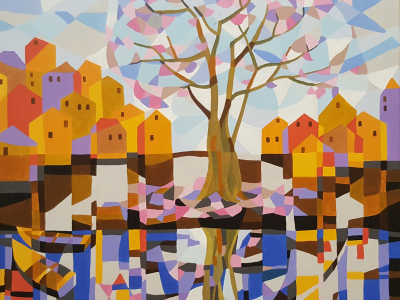







 “The other, the Man, is ab initio the reciprocant. At the same time, we must not forget the other side of the coin of this ability of the other to reciprocate me. This capacity, in fact, presupposes that the other person represents a "human life" just like mine, and therefore it presupposes the existence of a life of his own and not mine, with his own ego and his own exclusive world, which are not mine, which are outside and beyond me, which transcend my life".
“The other, the Man, is ab initio the reciprocant. At the same time, we must not forget the other side of the coin of this ability of the other to reciprocate me. This capacity, in fact, presupposes that the other person represents a "human life" just like mine, and therefore it presupposes the existence of a life of his own and not mine, with his own ego and his own exclusive world, which are not mine, which are outside and beyond me, which transcend my life". “The ideal of good faith … is, like that of sincerity …, an ideal of being-in-itself. Every belief is a belief that falls short; one never wholly believes what one believes.”
“The ideal of good faith … is, like that of sincerity …, an ideal of being-in-itself. Every belief is a belief that falls short; one never wholly believes what one believes.”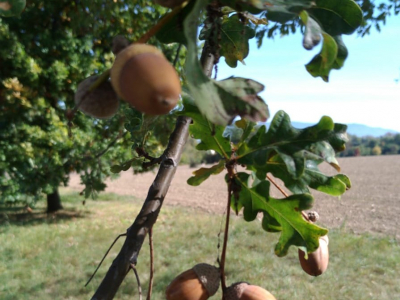
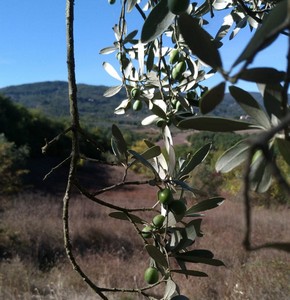 “With Moses we see the end of the mountaineering of sacred history, which began in reverse, downhill, with Noah who finds himself docked at the top of the Ararat with his basket boat and from there descends with the saved representatives of zoology..."
“With Moses we see the end of the mountaineering of sacred history, which began in reverse, downhill, with Noah who finds himself docked at the top of the Ararat with his basket boat and from there descends with the saved representatives of zoology..."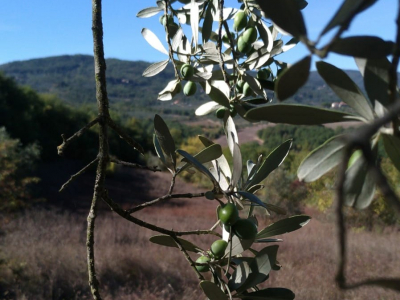
 “I am pure, I am pure! These words that the dead of ancient Egypt carried with them as a viaticum for their last journey are perhaps suitable for the mummies of the necropolises, but no living person could pronounce them in good faith.”
“I am pure, I am pure! These words that the dead of ancient Egypt carried with them as a viaticum for their last journey are perhaps suitable for the mummies of the necropolises, but no living person could pronounce them in good faith.”
 “The Master said, »At fifteen I set my heart upon learning. At thirty, I had planted my feet firm upon the ground. At forty, I no longer suffered from perplexities. At fifty, I knew what were the biddings of Heaven. At sixty, I heard them with docile ear. At seventy, I could follow the dictates of my own heart; for what I desired no longer overstepped the boundaries of right.«”
“The Master said, »At fifteen I set my heart upon learning. At thirty, I had planted my feet firm upon the ground. At forty, I no longer suffered from perplexities. At fifty, I knew what were the biddings of Heaven. At sixty, I heard them with docile ear. At seventy, I could follow the dictates of my own heart; for what I desired no longer overstepped the boundaries of right.«”
 He had the docility of wood. He was no longer a walking tree, as the blind man of Bethsaida had revealed to him, now he was planted in the ground and all his steps taken ended there with his feet joined and arms wide open like branches. Golgotha is a skinned hill, without vegetation. On its top now a man-tree sprang, grafted in blood.
He had the docility of wood. He was no longer a walking tree, as the blind man of Bethsaida had revealed to him, now he was planted in the ground and all his steps taken ended there with his feet joined and arms wide open like branches. Golgotha is a skinned hill, without vegetation. On its top now a man-tree sprang, grafted in blood.
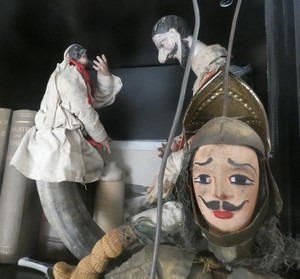 “Coi vecchi nostri canti che sai, voci di cose piccole e care, t’addormiremo, vecchio; e potrai ricominciare.
“Coi vecchi nostri canti che sai, voci di cose piccole e care, t’addormiremo, vecchio; e potrai ricominciare.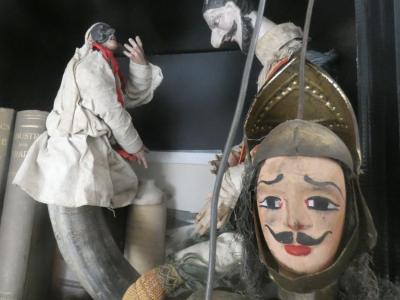
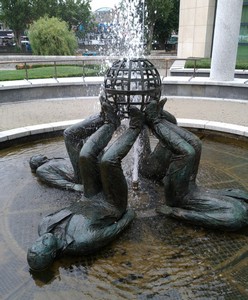 “Black Swan logic makes what you don't know far more relevant than what you do know.”
“Black Swan logic makes what you don't know far more relevant than what you do know.”